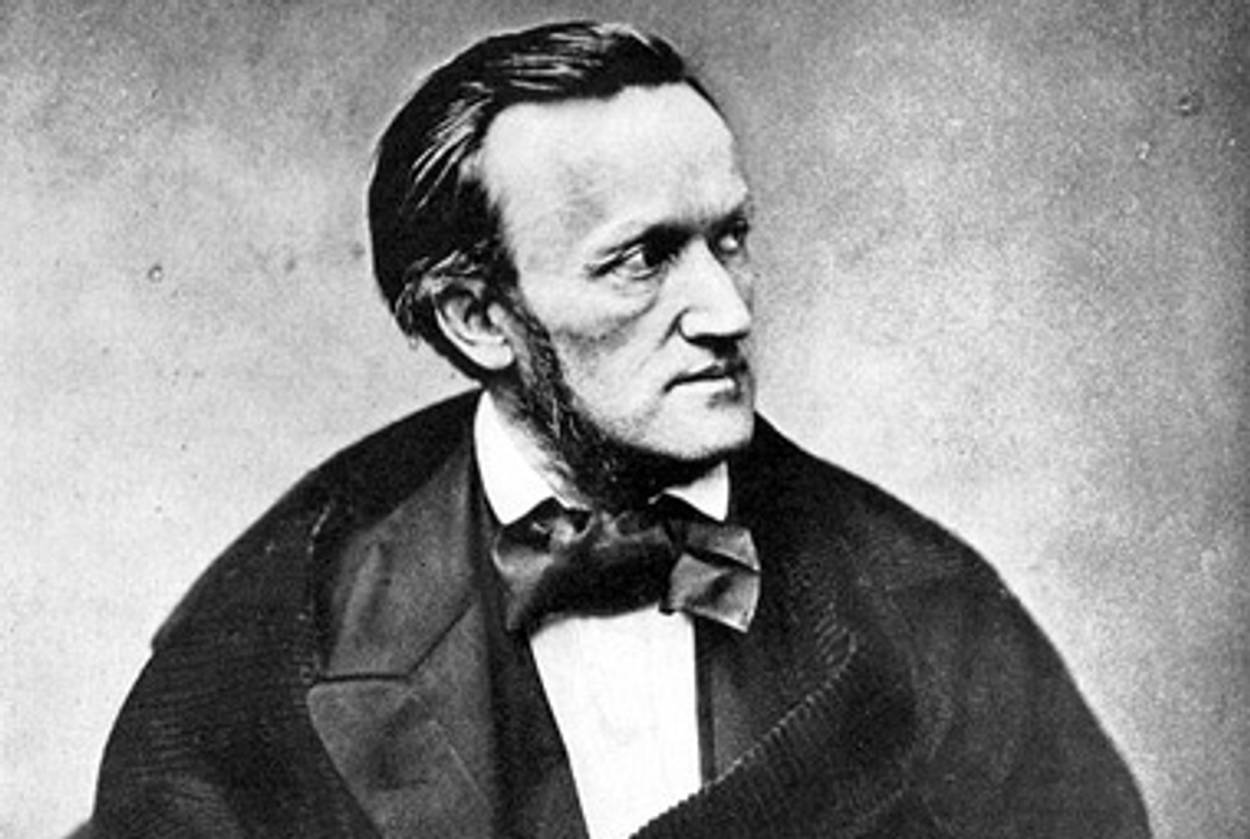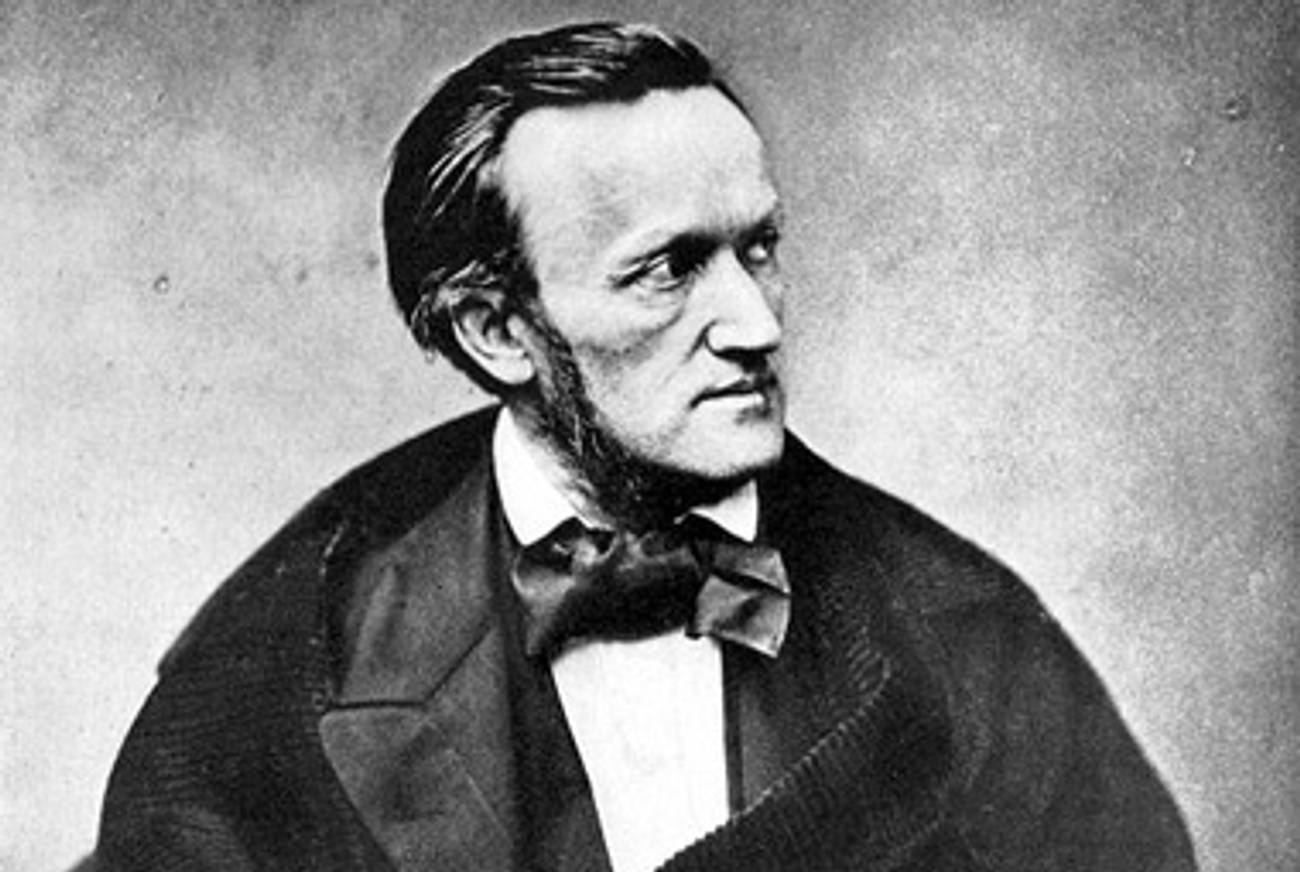Lord of the Ring
How Richard Wagner ousted Giacomo Meyerbeer from the operatic pantheon




There is perhaps no modern artist for whom ideology figured more centrally than Richard Wagner, the subject of this month’s Bard Music Festival in Annandale-on-Hudson, New York.
In addition to a slew of concerts exploring Wagner’s entire musical output, the festival features a panel discussion on “Wagner and the Jewish Question” as well as performances of ambitious works from Wagner’s most famous Jewish rivals, Giacomo Meyerbeer and Felix Mendelssohn—the two main targets of Wagner’s infamous essay “Judaism in Music.” In early August as prologue to the festival Bard staged a rare production of Meyerbeer’s Les Huguenots, which, though little seen today, was among the most-performed operas of the 19th century, with over 1,000 performances at the Paris Opéra.
When not composing operas that exalted Teutonic ideals of bravery and purity, one of Wagner’s favorite pastimes was writing anti-Semitic tracts, even though, as the saying goes, some of his best friends were Jewish. And in the early 1840s, one of his greatest Jewish friends was Meyerbeer, the granddaddy of French Grand Opéra and one of the 19th century’s most popular opera composers.
Meyerbeer’s Grand Opéra was a powerful influence on Wagner’s notion of the Gesamtkunstwerk (Total Work of Art), a fact that Wagner tried to hide in a series of spurious arguments in the essays “Judaism in Music” and “Opera and Drama.” In terms of grandeur, Wagner’s music dramas are a direct outgrowth of Grand Opéra. Wagner merely outstrips the competition with “bigger, louder and longer” operas, as the scholar Thomas Grey has put it. You could say that Wagner wanted to out-Meyerbeer Meyerbeer.
Wagner’s damning of Meyerbeer has had unfortunate consequences in terms of how the French composer has been studied, to say nothing of his virtual disappearance from the opera repertoire for nearly a century.
In his youth, Wagner expressed admiration for the cosmopolitan dimension to Meyerbeer’s music, which was achieved through the mixing of different national styles. Such impressions can be gleaned from an 1837 letter, in which the 24-year-old Wagner identifies his sympathies with Meyerbeer’s international program, which for Wagner pointed toward a “new direction.” Wagner calls the elder composer “the perfect embodiment of the task that confronts the German artist” and endorses the mixture of Italian and French musical styles.
In 1840, Wagner went to Paris to seek Meyerbeer’s support. In letters and diary entries from the period, Wagner has nothing but admiration for his mentor. In one letter to Meyerbeer, Wagner writes, “Goethe is dead—but he was no musician; there is nobody left but you.”
After two years of failure and hardship in Paris, however, Wagner changed his tune. Soon he would hiss that Meyerbeer’s music is as bastardized as a Yiddish translation of Faust.
In a 1843 letter, Wagner vehemently denies Robert Schumann’s suggestion that Der fliegende Holländer (The Flying Dutchman) “smacks of Meyerbeer.” Wagner insists that to draw inspiration from Meyerbeer would be “the death-knell of my creative powers.” This letter highlights Wagner’s growing disillusionment with Meyerbeer while suggesting anxiety about his own creative state. Many of the points he makes in the letter to Schumann resurface in “Opera and Drama,” this time with an overtly anti-Semitic element.
Starting with the first version of “Judaism in Music,” which was published 1850, Wagner’s vilification of Meyerbeer, as both composer and as Jew, is complete. His campaign against Meyerbeer had it seeds in the events of the summer of 1847. After a failed attempt to get his Rienzi staged at the Prussian Court Theatre in Berlin, Wagner was near financial ruin and was contemplating suicide. That Meyerbeer had been involved in managing the funds for Rienzi sent Wagner into a fit; he put the blame for the opera’s failure squarely on Meyerbeer’s shoulders. Such accusations against a man who by all accounts did much to help and encourage the budding Wagner betray the deep paranoia and mistrust that came to characterize him more fully in later years.
Wagner sought to gradually oust Meyerbeer from the operatic pantheon and claim for himself all that he felt to have been once possessed by onetime mentor. In a surprisingly short period of time, Meyerbeer went, in Wagner’s mind, from being opera’s savior to its most nefarious corruptor. That Meyerbeer is not regarded as the foremost influence on Wagner today is testament to the effectiveness of his smear campaign.
Among Wagner’s criticisms of Meyerbeer is that his music is “fake revolutionary” and seeks only to gratify the listener. Wagner elaborates on his disdain for the Meyerbeerian world of the Paris Opéra House in his response to a letter by Franz Liszt, who had asked whether Wagner had penned “Judaism in Music” (the first publication of the essay was unsigned). “I cannot exist as an artist in my own eyes or in those of my friends, I cannot think or feel anything without sensing in Meyerbeer my total antithesis,” he wrote. The need to extricate himself from Meyerbeer becomes a “necessary act if my mature self is to be fully born.”
The basic critiques present in Wagner’s correspondence as early as 1843 resurface in “Judaism in Music” and “Opera and Drama” with bluntly anti-Semitic undercurrents. With its talk of mauscheln (so-called perverted speech that could in turn produce only perverted music), and its claim that Meyerbeer stole from Weber and Rossini, “Opera and Drama” argues that Meyerbeer was inherently incapable of producing absolute music: “As a Jew, [Meyerbeer] owned no mother-tongue, no speech inextricably entwined among the sinews of his inmost being.”
The litany of accusations includes a caricature of Meyerbeer as a gibberish-spewing creature of “monstrous ostentation.” Additionally, Wagner derides his cosmopolitanism, which Wagner now claims jumbled various genres, national styles, and stage effects together in one “mass of crude confusion.”
In vilifying Meyerbeer, Wagner was concurrently finding a scapegoat for his unhappy Paris years and a convenient way of denying any notion of artistic indebtedness. Indeed, in order for Wagner to become German opera’s new “Messiah,” he had first to distance himself as much as possible from the long shadow of his predecessor. In essence, Wagner argued that he couldn’t be like Meyerbeer because he wasn’t Jewish.
In this day and age, we are more convinced by Wagner’s music than by his rhetoric. Sadly, however, the enormous influence that Wagner exerted on the way that music is made and thought of has made a serious reassessment of Meyerbeer’s output all but impossible.
A.J. Goldmann is a writer based in Berlin. His articles on art and culture have appeared in The Wall Street Journal, USA Today and The Christian Science Monitor.
These articles are not currently attributed to anyone. We’re working on it!